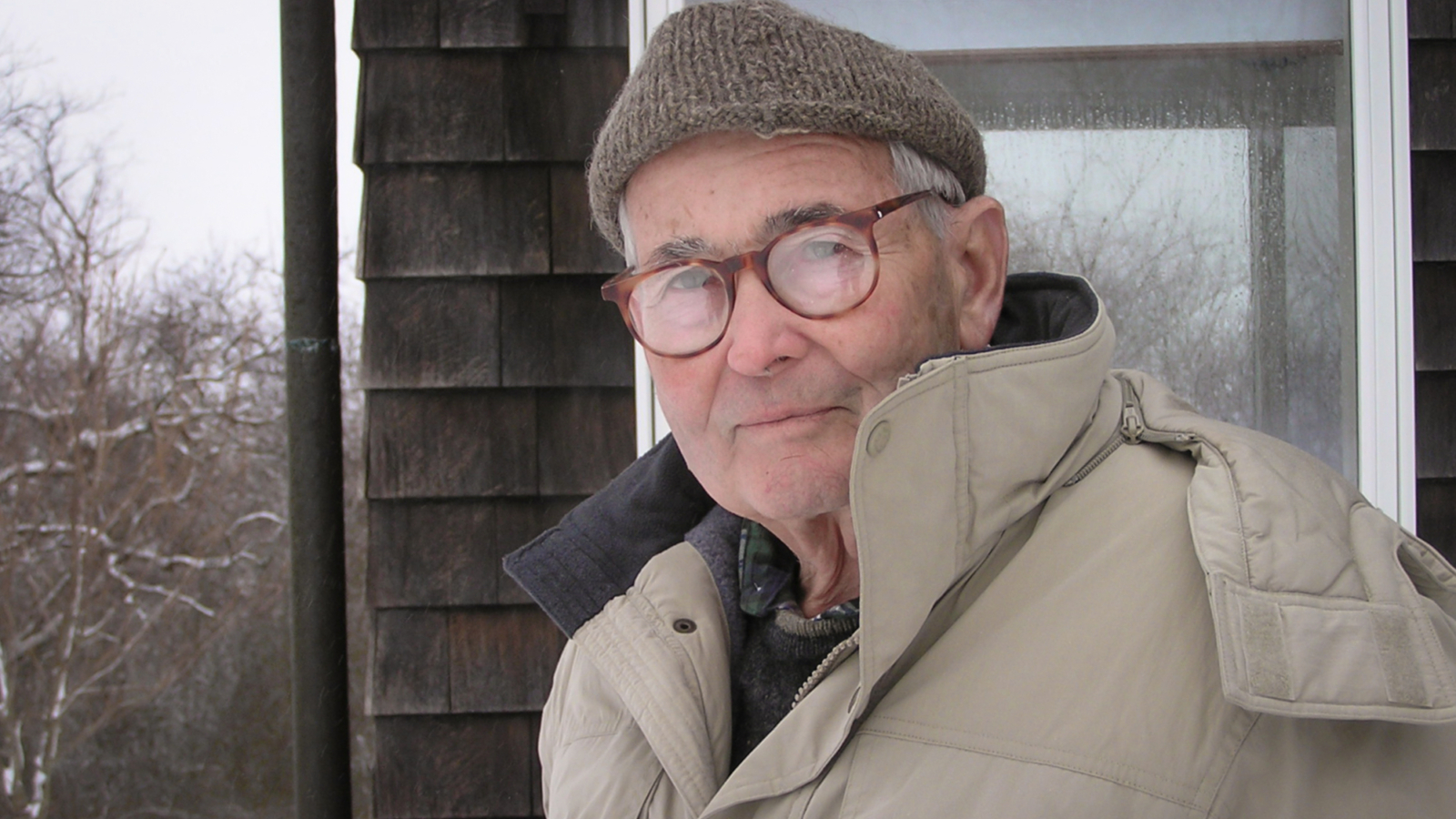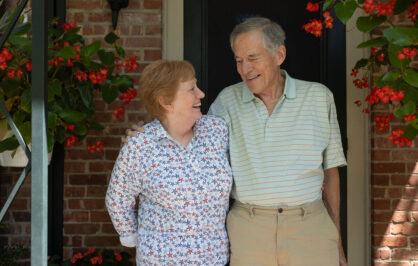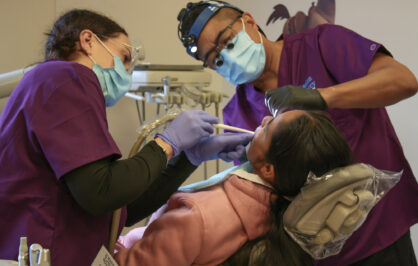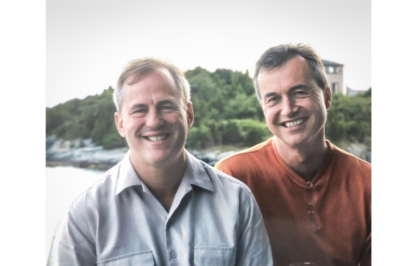
Donors
James K. and Anne F. Sunshine Scholarship Fund
James K. Sunshine, a retired Providence Journal editor and longtime supporter of the Rhode Island Foundation, died on December 27, 2023. His bequest to the Foundation creates the James K. and Anne F. Sunshine Scholarship Fund, to assist “college-bound students with strong academic backgrounds who are Rhode Island residents and who have emigrated, or whose parents have emigrated, to this country, with preference given to those students whose parents have not attended college.”
To understand why Jim so valued education, you have to begin with where he came from. His father, Bela Sonnenschein, or William Sunshine, immigrated from Hungary in 1902 at the age of 14. Joining the family firm in Cleveland, William was a traveling salesman who took men’s clothing samples to department stores around the Midwest. During the Depression, to make ends meet, Jim’s mother sold dresses out of their home and later opened her own shop. Neither parent went beyond high school. Jim respected his parents, but he never forgot that he too could have been on the road with a trunk of samples rather than running a newsroom had it not been for education.
Jim attended Cleveland Heights public schools, always serving on the school newspapers. He graduated in 1942, and knowing little of college, asked a friend where he might apply. His friend had just returned from a visit to nearby Oberlin College and gave a favorable report. Jim applied and was accepted. His family had no money, so he borrowed the $800 tuition from his Aunt Mildred, a prosperous merchant in Michigan, and entered college in the fall of 1942.
By the spring of 1943, the war was heating up, and Jim left Oberlin in the middle of his freshman year to enlist. He served in Europe as a surgical technician in the 42nd Field Hospital from the Utah Beach D-Day landing to the end of the war. Afterward he returned to Oberlin, on the GI bill this time, and worked on the college newspaper, the Oberlin Review. Jim married Anne Fassett in the campus chapel in 1948 and graduated in 1949. He went on to the Columbia School of Journalism, graduating in 1951.
Wilbur Bromage, at the Providence Journal, interviewed Jim but told a dean at Columbia that he could not hire someone who wanted to be an editor rather than a reporter. The dean advised Jim to write a letter proclaiming his great desire to cover school board meetings and auto accidents. Swallowing his pride, Jim did as advised, and Bromage hired him at $65 a week.
After more than a year in the South County bureau, Jim moved to the city staff in 1953. He became education writer in 1955, winning awards for his coverage of the field. After a few more years of reporting, he achieved the goal he had set during his job-search days: he became an editor. Over the decades, he moved up the ladder to deputy executive editor, retiring in 1995. After his death, messages came in from younger colleagues who remembered his patient mentoring.
Anne Sunshine worked for the state of Rhode Island as a social worker with Child Protective Services. She was also an editor for William McLoughlin, professor of history at Brown University, who was publishing the papers of Isaac Backus, an early Rhode Island Baptist clergyman. For the last decade of her life Anne was a staff member at the Providence Athenaeum. The Sunshines lived first at the corner of Williams and Thayer Streets on the East Side. Later, they bought a house on Bowen Street and raised their two children there, and in 1989 they built a retirement home in Tiverton. Anne died in 1999. Six years later Jim moved back to Ohio, to the Kendal retirement community at the edge of the Oberlin College campus.
Jim’s life was marked by his steadfast belief in education as a path to betterment. He later recalled, “Oberlin opened my eyes.” Asked why he planned to endow a fund to benefit immigrants who are first in their family to attend college, he replied, “College, and particularly a liberal education, is essential. It changed my life. If there were anything I’d wish for someone it would be to get that kind of higher education. This country has been good to my father and my mother, and it has been good to me. I think you have to give something back for that. I can’t think of anything I’d rather leave behind me than a fund to help people get a good education. Where would I have been if it hadn’t been for Aunt Mildred’s $800?”



